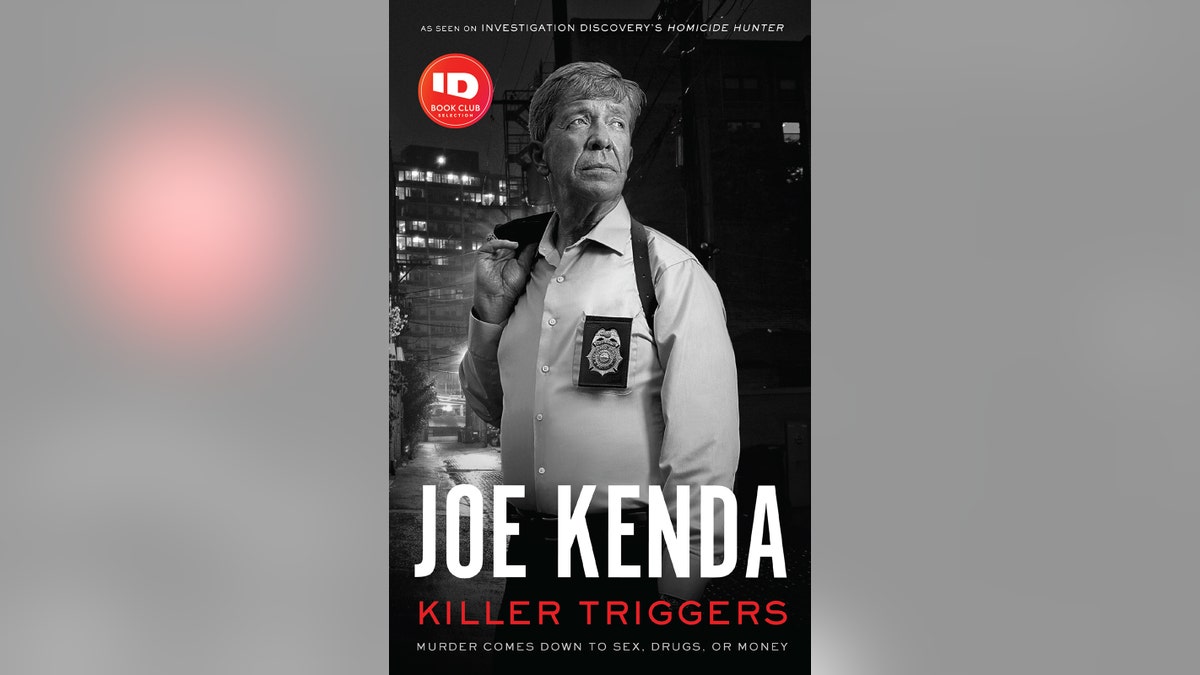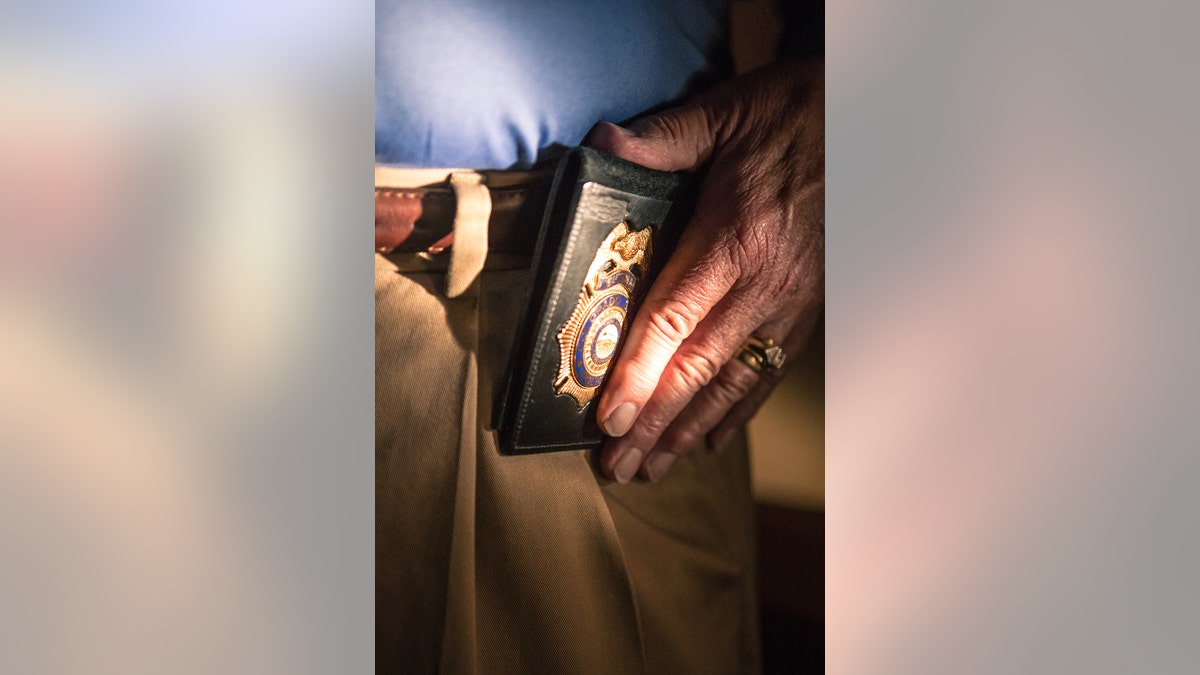‘Homicide Hunter’ star Lt. Joe Kenda reveals the one case that haunts him the most
‘Homicide Hunter’ star Lt. Joe Kenda reveals the one case that haunts him the most, gets candid on why he’s leaving the hit true crime series.
EXCLUSIVE: Lt. Joe Kenda is revisiting some of the most shocking murders he’s ever encountered.
The "Homicide Hunter" and "American Detective" star has released a new book titled "Killer Triggers" where he details some of his homicide cases from over the years as he explores what causes someone to kill. Whether it’s money, lust, rage, and more rarely, sheer madness, the 74-year-old shared his no-nonsense account from cases he investigated or oversaw.
Kenda is a 23-year veteran of the Colorado Springs Police Department who spent 21 years chasing murderers as a homicide detective and commander of the major crimes unit. Kenda and his team solved 356 of his 387 homicide cases, getting a 92% solve rate – one of the highest in the country. After retiring from law enforcement, Kenda starred in the true-crime docuseries "Homicide Hunter" that ran for nine seasons on Investigation Discovery.
‘HOMICIDE HUNTER’ STAR LT. JOE KENDA REVEALS THE ONE CASE THAT HAUNTS HIM THE MOST

Lt. Joe Kenda's new book titled 'Killer Triggers' is currently available.
Kenda spoke to Fox News about what inspired him to write "Killer Triggers," which one proved to be the deadliest of them all, as well as the one case that continues to perplex him today.
Fox News: What inspired you to write "Killer Triggers" now?
Lt. Joe Kenda: Well, I'd written another book in 2017 about my career, and I gave it some more thought and decided maybe I should do this one as well. And the principle behind this book is, what would cause a reasonably normal person with little or no criminal history, including even children ... What emotional trigger gets pulled that allows them to set a ball of violence in motion?
And I did that by examining a number of my own murder cases that I investigated to determine what emotional trigger that was. And it's very interesting. It's very dark, of course. It’s not fiction. It is reality. So it's a different look at something.
Fox News: Which trigger proved to be the deadliest of them all and why?
Kenda: Well, it's drugs. Sixty-five percent of all homicides in this country occur as a result of narcotics – paying for them, attempting to buy them, attempting to steal them and mistakenly not paying for them. People who sell drugs often get high on their own supply. They shoot the wrong guy because they think he owes them money and he doesn't.

Lt. Joe Kenda's new true-crime series 'American Detective' is now available for streaming on discovery+. (Credit Stephanie Diani)
All those sorts of things continue on. So narcotics and the relationships that develop because of it cause well over half of the homicides in this country. There's only 5% of homicides that occur for strangers. So you have a 95% chance of being killed by someone you know well.
Fox News: You also said madness was the rarest. How so?
Kenda: Well, people who are insane cannot hold something together for longer than a few minutes. They can't execute a plan, they can't create one. They may have a moment when they consider hurting someone. The moment passes quickly, or they forget about it, or they don't remember who it is they hate, and so on. So there they live in a state of common and total contusion and it never results in action. It results in conversation, it results in emotional things, but it rarely results in pulling any triggers or picking up any knives or crystal ashtrays.
Fox News: Which was the most exciting case for you to explore or revisit, and why?
Kenda: Well, it's not exciting to me. I'm a professional. I think one of the things that I felt most strongly about was there's a case in chapter three referring to dementia as the cause; the emotions were caused by transient ischemic attacks, which doctors call TSAs. They are ultimately little strokes that result in changing the blood flow in the brain, common in dementia patients.
That results in personality changes making them aggressive, profane and violent. And I wanted the public to know, by reading that chapter, the warning signs, that all of a sudden this person's personality changes dramatically, although no apparent illness or no apparent impact otherwise, but their behavior becomes markedly different.
Your Christian grandmother begins using four-letter words and saying people should die, and those sorts of things… This has altered her personality, and they become dangerous. Now, if they're in a wheelchair confined to a bed, well, OK, they're not capable of hurting anyone. But if they're ambulatory and relatively strong, you're at risk for that. They're not the person you knew and loved. They're somebody else.
Fox News: Are there any warning signs people should look out for?
Kenda: Of course. The guy in this particular case began to write death lists of people that should die. Now initially, he wrote like the president, the governor, the mayor - things that aren't really possible to do, realistically. But after that, he began to focus on family members. His daughter should be killed, his seven-year-old grandson needs to go away, those sorts of things.

Lt. Joe Kenda starred in the true-crime docuseries 'Homicide Hunter' that ran for nine seasons on Investigation Discovery. (Photo by Tommaso Boddi/Getty Images for Samsung)
Now, wait a minute. You are capable of hurting them. They're right next to you. And that's a whole different thing. So it is on the severity. And not that it won't happen, because it does happen. The profanity and their aggressiveness and so on is one thing. But when you start moving from the subconscious to the conscious mind, and you start writing down people's names and saying they must die - holy smokes. That's a whole different thing.
Fox News: Which case left you stumped and why?
Kenda: We had a 15-year-old boy - 15 - who was a sociopath. He is incapable of any emotion except rage. He's drinking a wine cooler in his room and his mother takes it away from him and slaps him. He goes to school every day for four months and begins to inquire of other students, "Can you get me a gun?" And they say to him, "Well, why do you want a gun?" He responds, "Because I'm going to kill my mother." And they thought he was kidding. And they would say to him, "Why are you going to kill your mother?" He says, "Because she slapped me, and nobody slaps me."
He finally got somebody to provide him with a gun. Then he killed his mother, up close and personal in the face with a .357 Magnum. He tried to make it look like a burglary. Now, who are you, and where did you come from? He had siblings that were just fine. Not him. It places an argument against the nature/nurture [theory], where the social scientists say it's all nurture; you put this kid in a bad environment, he becomes a bad kid.

Lt. Joe Kenda said 'Homicide Hunter' helped him faced his PTSD. (Photo by Frederick M. Brown/Getty Images)
Well, this kid was in the same environment as his siblings, and they're just OK people, and he is a monster. So how do you explain that? I don't know. If I knew, I'd write another book and retire to the South of France because I'd be the only guy who knew.
Fox News: You and your team solved 356 out of 387 homicide cases. Do you think the remaining unsolved ones will ever be solved?
Kenda: Three of them already have been. There were 31 we didn't solve. There are three of those that have now been solved by advances in DNA testing. So now the number's down to 28. But when I was there, we resolved 92% of our cases, which is very high. The national average runs between 55% and 65% clearance, so we're well above that. So, but still, you can look at it two ways: I'm a smart guy who knows who killed 92% of the people, or I'm a dumb guy who doesn't know who killed 8% of the people. It all depends on how you look at it.
Fox News: Looking back, what do you think kept you going?
Kenda: What keeps you going is a promise you make to every victim. I would make that promise at the autopsy. I attended every autopsy and said, "I will find who did this to you, and I will bring them to justice." And I did most of the time, but not every time. And it's maddening when you can't do it every time, but it's elating when you can do it at all. It's a very difficult business.

Lt. Joe Kenda admitted he's shocked fans continue to approach him after 'Homicide Hunter'. (ID)
Fox News: Before "Homicide Hunter," you didn't really talk about your cases. Could you describe that moment in your life when you realized you may have PTSD?
Kenda: Oh, I always knew it. I think I was of a generation that was always taught to be stoic and stuff your feelings down and don't consider it. One of the most difficult things about police work is that you have no time to consider what you just saw or what you just did because you come out of having seen or done that and you respond to the next call. There's no time for debriefing, no time to calm down, no time to consider the moment. It just goes on and on and on.
The result is, over time, it builds up to a point where I became a very quiet and sullen person. My wife can attest to that. And when I started filming that show, I agreed to do it because I thought talking about it might help. And when I did the first episode of the first season, the director said, "I just want you to tell us everything." I had no script. I said whatever I wanted, and the flood gates opened. And I said more to that camera than I've ever said to my wife.
Fox News: What would you say didn’t work in terms of facing your PTSD?
Kenda: I thought in not facing the PTSD, in not talking about it, it would go away. Well, it doesn't. And it doesn't go away after you talk about it, either. It never goes away. You can't unsee what you've seen, period. I would love to. I cannot. So I thought about it a lot. And then I thought, "No. Why burden my wife with hearing the pain and suffering? So I'll protect her," which was a mistake because it just made her mad. She felt excluded from me, for that period of time that I worked.

'Homicide Hunter' aired from 2011 until 2020. Lt. Joe Kenda is now starring in 'American Detective'. (ID)
CLICK HERE TO GET THE FOX NEWS APP
Fox News: When did you realize that you had become a celebrity, especially after "Homicide Hunter"?
Kenda: The first time somebody asked me for my autograph, I was absolutely shocked. I thought, "What do you want that for?" Really, that was my thought. It was very difficult for me to believe that I was somehow a celebrity. It still is. It's like, "Wait a minute. No one was ever happy to see me, my entire working life."
Now people are. It's very bizarre. It really is. And people recognize my voice. I have a distinctive voice, and people recognize it. Even with my back turned and their back turned, I've heard people say, "That's Joe Kenda's voice." And they start looking around and say, "There he is," like I'm a fugitive from justice, like, "Call the FBI. There's Joe Kenda." It's very strange.















































